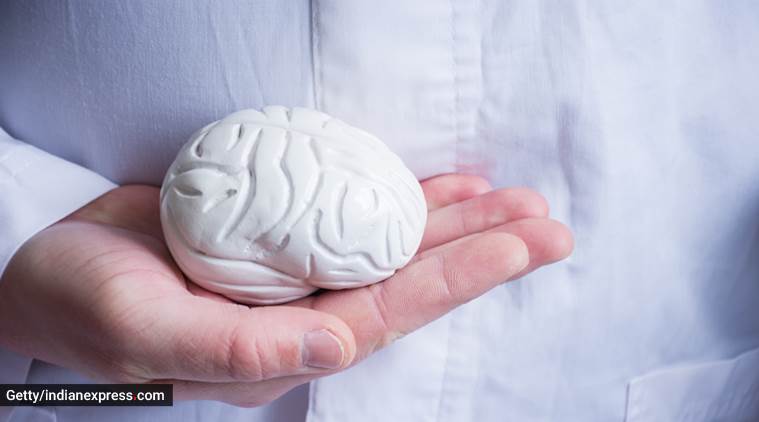The survival rates for many childhood brain tumours, especially low grade astrocytomas and medulloblastomas, have improved over the last two decades and almost 60-70 per cent of them become long-term survivors.

By Nandini Choudhary Hazarika
The incidence of brain tumour is increasing and it’s now the second most common cancer in children. It accounts for almost 20 per cent to 25 per cent of all cancers in children. One of the causes could be due to better diagnostic facilities with easy availability of MRI (magnetic resonance imaging) scans. Though the exact cause is not known, there are multiple risk factors including environmental pollution, exposure to chemicals, radiation, viral infections leading to changes in the genes (genetic mutation).
Brain tumours can be benign (non-cancerous) or malignant (cancerous).
Common symptoms and signs
Symptoms like headache, vomiting (especially early morning projectile vomiting) gait disturbances, weakness in arm or legs, visual disturbances (dimness of vision, squint, double vision, etc), seizure, speech problems are harbingers of brain tumours. Sometimes, poor academic performances, personality changes, behavioural changes can also be associated with brain tumours. Vomiting in children can be due to some stomach related issues also but if vomiting continues and is associated with headache or any other specific symptoms, then the child should be investigated to rule out any brain related cause.
Symptoms and signs mostly depend on the location of the tumour and age of the child.
ALSO READ | Blood in the stool of a child under two years: What does it mean?
The common brain tumours seen in children are low grade astrocytoma, midline glioma medulloblastoma, ependymoma, ATRT, germ cell tumor, etc.
Diagnosis
– MRI of the brain with contrast: In case of suspicious symptoms imaging studies of the brain is advised, preferably MRI.
– Histopathological diagnosis: Final diagnosis, which includes the type of brain tumour, is done by tissue diagnosis (biopsy) of the tumour.
– Molecular markers: Testing for molecular markers are now becoming an important part of management of paediatric brain tumours. These markers play an important role in the outcome and treatment planning as a specific molecular target or genetic mutation can be detected and specific targeted medicines against that gene can be offered.
ALSO READ | How does tobacco affect new moms and babies? An expert answers
Treatment
Surgery remains the mainstay of treatment for most of these tumours except some brain stem lesions. Radiation therapy and chemotherapy also play important role in malignant brain tumours.
Once surgery is done, the tumour tissue is sent for histopathological examination and that confirms the type and accordingly further treatment is planned with radiation therapy and chemotherapy.
Radiation therapy is avoided in children below three years of age due to its long-term side-effects on the developing brain. But with the newer modality like proton therapy even younger age group children can be offered radiation therapy with less long-term toxicity. Radiation therapy plays an important role in the treatment of malignant brain tumors.
Chemotherapy is again an integral part of treatment of many paediatric brain tumours including medulloblastomas, one of the commonest embryonal tumors in children, which have shown improved outcome with combined modality treatment.
ALSO READ | Pregnancy myth vs fact: Does IVF yield better results in summers?
The survival rates for many childhood brain tumours, especially low grade astrocytomas and medulloblastomas have improved over last two decades, and almost 60-70 per cent of them become long-term survivors. But, many survivors having lifelong deficits caused by their illness as well as by treatments are not uncommon. Probably with molecular diagnostics and newer targeted therapies, the issue of long-term toxicity will have some answer in the near future.
(The writer is a Pediatric Hemato-oncologist at Madhukar Rainbow Children’s Hospital)
? The Indian Express is now on Telegram. Click here to join our channel (@indianexpress) and stay updated with the latest headlines
For all the latest Parenting News, download Indian Express App.
Source: Read Full Article



